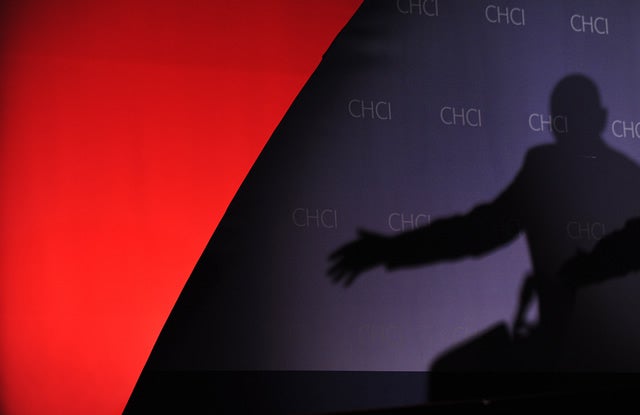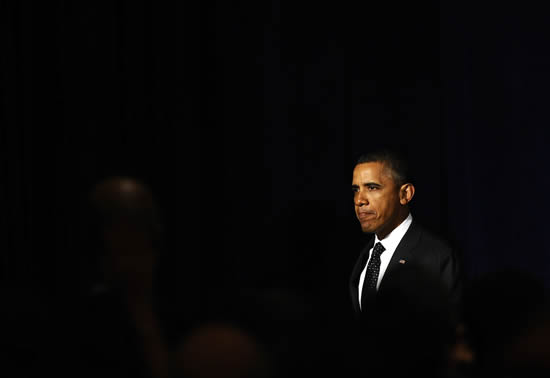Tonight, Americans who tune in to the State of the Union will watch the work of a rhetorical master with a flair for illusion. President Barack Obama will take to the floor of the Capitol in hopes of laying the groundwork for a political debate on his terms–one where he stands on emotional appeals, populism, and class warfare, not the shaky ground of his crumbling record. And looking right back at him will be the U.S. Senate, which has for the past 1,000 days failed to pass a budget–a total shirking of their fundamental duty to be diligent stewards of the taxpayers’ dollars.
The President will thus rely on the power of his words. With flourish, he will tell the story of America through a progressive’s eyes–one where “fairness” takes on a new meaning, where America’s core values are brushed aside, and where the truth about a failed presidency is forgotten in the shadows of his country’s collective memory. The President will speak from the high ground of his vaulted office. The question is whether the elevation conferred by his office will allow him to escape the soaring deficits, depths of unemployment, or miles of job-killing regulation that his Administration has wrought.
Before considering the President’s record, first consider his message–that economic populism is the core of America’s principles, that the federal government should be the guarantor of equal outcomes and that “fairness” of achievement should be decided by legions of bureaucrats in Washington. It is a theme that the President unveiled in a speech last month in Osawatomie, Kansas, and it’s one he plans to return to tonight. This vision is at the root of the President’s progressive ideal. It is not, however, the ideology on which our country was founded. The Heritage Foundation’s Matthew Spalding, vice president of American Studies and director of the B. Kenneth Simon Center for Principles and Politics, explains:
America is exceptional because it is dedicated to the principle of universal human liberty: that all are fundamentally equal by nature and equally endowed with unalienable rights to life, liberty, and the pursuit of happiness. This principle and the constitutional framework of law that enlivens it are the foundation of the American Dream…
What is truly revolutionary about the United States is that the ladder of opportunity became available to everyone. As a result, poverty has been vastly diminished. Even more important, it is no longer a permanent condition from which there is no real possibility of escape.
The “ladder of opportunity” exists so that people may apply their God-given talents and abilities in order to better themselves and pursue the American dream. That is the liberty that makes the United States unique. The President, though, does not stand for that dream. Instead, as he has made clear, he believes that it is through government engineering that society can advance–through more government power, federal education programs, economic regulations, and infrastructure spending, all funded by “fair” taxes on “wealthy” Americans.
This sort of progressivism has its roots in 100 years of history and 100 years of failure. But the country need not look back into the annals of time to see the proof. They only need to see the President’s record of the past three years–facts that will undoubtedly receive short shrift in tonight’s speech.
Obama enacted a purely progressive agenda with his expansion of the state under Obamacare, his trillion-dollar stimulus bill, the government takeover of the auto industry, the proliferation of regulations under the Dodd-Frank regulatory reform bill, the crony capitalism of the Solyndra scandal, and the illegal appointments to the unrestrained Consumer Financial Protection Agency and the National Labor Relations Board. The result: Some 13.1 million Americans remain unemployed, job creation has been abysmal for much of the past three years, and the President’s promise to turn around the U.S. economy has gone unfulfilled.
Meanwhile, the Senate has largely acceded to the President’s agenda while leaving undone the budgeting process for the past 1,000 days. Instead of respecting the people’s money and putting it to its appropriate use, the Senate has chosen to pass short-term “business as usual” continuing resolutions, one after another, all while government spending continues to skyrocket, deficits are exploding, the country’s credit rating is in jeopardy, Social Security and Medicare are in crisis states, and future generations are left holding the bag.
The President’s “populist” message is designed to appeal to the American people–and this is after all what all American politicians try to do. It is fair, however to ponder how the people have fared under the President’s policies. It is hard to miss the mass of unemployed Americans, the plodding economy, the businesses that are afraid to grow and expand, and the jobs that are being left on the table. It is understandable that the President will not want to bring up these “achievements.”
Christopher Columbus discovered the New World in 70 days. The Empire State Building was built in 410 days. Yet for 1,000 days, the U.S. Senate has failed to pass a budget. Find out more in our newest video, “1,000 Days Without A Budget.”
Quick Hits:
- Despite the European Union’s decision to issue an oil embargo against Iran, the country’s officials repeated their threat to close off the Strait of Hormuz, which would block a quarter of the world’s oil supply.
- The Supreme Court yesterday ruled that the Constitution bars police from tracking an individual’s car with a GPS device attached without a warrant from a judge.
- Verizon Communications suffered a $2 billion loss in the fourth quarter last year as a result of pension costs and the high cost of selling the Apple iPhone.
- Human Rights Watch says that the militant Islamist sect Boko Haram is responsible for the deaths of at least 935 people in its “campaign of terror” in Nigeria.
- In the last 1,000 days since the Senate passed a budget, the federal government has spent $9.4 trillion, added $4.1 trillion in debt, and left America with a total public debt of more than $15 trillion. Get the facts on The Foundry.

